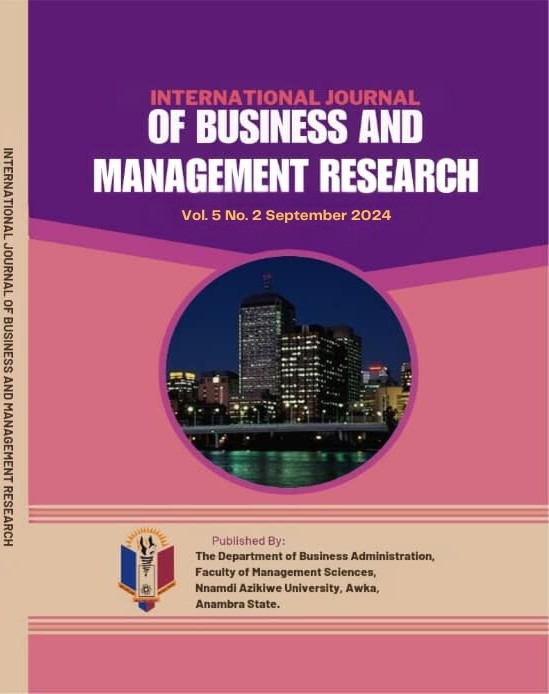Variance Ratio Tests of Random Walk Hypothesis of Stock Return in Nigeria: Further Evidence
Keywords:
Nigeria Stock Exchange, Weak-Form, Efficient Market Hypothesis, Unit Root Tests, Variance Ratio TestAbstract
This study investigated whether stock returns in Nigeria equity market follows a random walk as stated by the efficient market hypothesis. Therefore, this study examined the weak-form of market efficiency in Nigeria stock market by testing the random walk hypothesis through various approaches, specifically unit root and variance ratio tests on the monthly price index of the Nigeria Stock Exchange over the period from January, 2013 until December, 2022. The empirical results rejected the random walk hypothesis at the weak-form level, indicating that the stock prices do not fully reflect all historical information. This has important implications for the fortune of equity investors: Increase market activities through reduction in transaction cost and increase in membership of the NSE, and minimize institutional restrictions on trading of securities in the bourse. This made all other markets to flow as a deregulated market. It is therefore, recommended that there is need for policy makers to enlighten potential investors of the opportunities that are available in the stock market. Such enlightenment should seek to stimulate their interest in capital market activities and thus increase the breadth and depth of the capital market.




